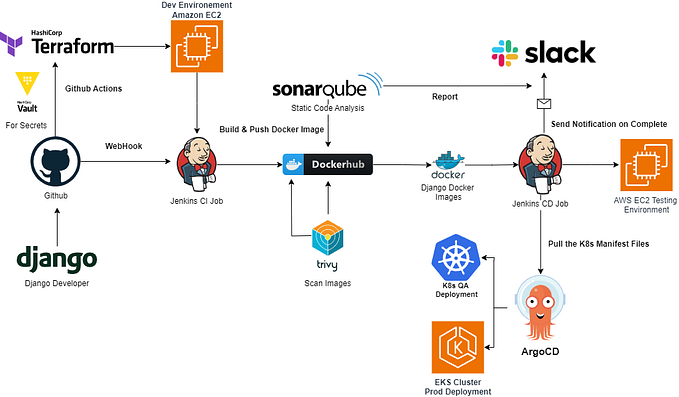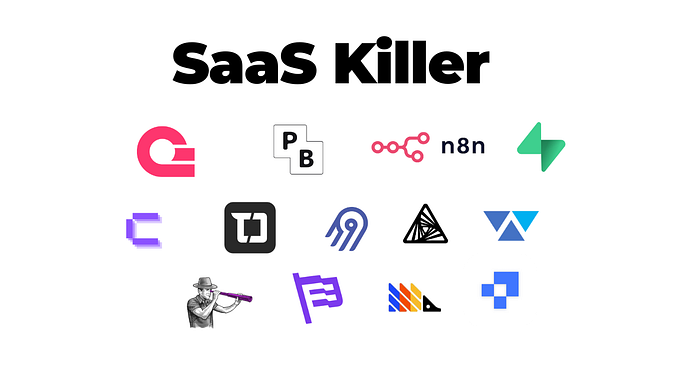Demystifying DevOps: A Comprehensive Guide to Understanding the Core Concepts

Introduction
In today’s fast-paced and technology-driven world, software development and operations have become critical components of every business. Organizations are constantly striving to improve their software delivery process to stay ahead of the competition. This is where DevOps comes into play. DevOps is a revolutionary approach that bridges the gap between development (Dev) and operations (Ops) teams, enabling them to work together seamlessly and deliver software faster and more efficiently.
In this comprehensive guide, we will demystify DevOps for beginners, providing a clear understanding of its core concepts, principles, benefits, and implementation strategies. Whether you are a developer, operations professional, or simply interested in understanding this transformative approach, this guide will serve as a valuable resource on your DevOps journey.
What is DevOps?
DevOps is a cultural and technical approach that promotes collaboration, communication, and automation between development and operations teams. The goal of DevOps is to streamline the software delivery process, enhance the overall development lifecycle, and improve the quality and stability of software applications. By breaking down silos and fostering a culture of shared responsibility, DevOps enables faster, more reliable, and scalable software delivery.
Key Principles of DevOps
To truly understand DevOps, it is essential to grasp its key principles and how they contribute to its success. Let’s delve into the fundamental principles of DevOps:
a. Continuous Integration (CI)
Continuous Integration (CI) is a practice that involves integrating code changes from multiple developers into a shared repository multiple times a day. By doing so, the development team can detect and address issues early in the development process, ensuring that the codebase is always in a releasable state.
b. Continuous Delivery (CD)
Continuous Delivery (CD) is the next step after continuous integration. It focuses on automating the software deployment process to ensure that changes can be released into production environments quickly and reliably. CD enables organizations to deliver software updates in a controlled and efficient manner, reducing the time to market and increasing customer satisfaction.
c. Infrastructure as Code (IaC)
Infrastructure as Code (IaC) is a concept that treats infrastructure configurations as code. It involves using version control systems and automation tools to manage and provision infrastructure resources. By leveraging IaC, organizations can achieve consistency, reproducibility, and scalability in their infrastructure deployments.
d. Automation
Automation is a crucial aspect of DevOps. It involves automating various tasks and processes, such as testing, provisioning, and deployment. By automating repetitive and error-prone tasks, organizations can improve efficiency, reduce human errors, and focus on more valuable activities.
e. Monitoring and Feedback
Monitoring and feedback play a vital role in DevOps. By implementing robust monitoring tools and techniques, organizations can gain valuable insights into the performance and user experience of their applications. Continuous monitoring allows teams to detect and resolve issues proactively, ensuring high availability and reliability.
Benefits of DevOps
DevOps offers numerous benefits to organizations, driving them towards adopting this transformative approach. Let’s explore some of the key benefits of DevOps:
a. Increased Collaboration
DevOps fosters collaboration between development and operations teams, breaking down silos and promoting shared responsibility. By working together closely, teams can align their goals, improve communication, and deliver software faster and with improved quality.
b. Faster Time to Market
Automation and streamlined processes in DevOps enable organizations to accelerate software release cycles, reducing the time to market. This agility allows businesses to respond quickly to market demands, gain a competitive edge, and deliver value to customers more efficiently.
c. Enhanced Stability and Reliability
DevOps practices, such as continuous monitoring and feedback loops, contribute to increased system stability and reliability. By proactively detecting and resolving issues, organizations can ensure that their applications are highly available, performant, and provide a seamless user experience.
d. Scalability and Flexibility
DevOps enables organizations to scale their applications seamlessly and adapt to changing business requirements. By leveraging automation and infrastructure as code, organizations can provision and manage resources more efficiently, ensuring that their applications can handle increased workloads without compromising performance.
Implementing DevOps
Implementing DevOps requires a combination of the right tools, technologies, and cultural changes within an organization. Let’s explore the key aspects of implementing DevOps:
a. Tools and Technologies
Several tools and technologies play a crucial role in implementing DevOps practices. Some popular DevOps tools include Ansible, Kubernetes, Jenkins, and many more. These tools enable automation, orchestration, and collaboration, streamlining various aspects of the software delivery pipeline.
b. Building a DevOps Culture
DevOps is not just about tools; it is also about fostering a culture of collaboration, trust, and continuous improvement. Building a DevOps culture involves breaking down silos, encouraging cross-functional teams, promoting effective communication, and embracing a mindset of shared responsibility.
c. DevOps Adoption Challenges
While DevOps offers numerous benefits, organizations may face challenges during their DevOps journey. Common challenges include resistance to change, lack of skills and knowledge, and cultural barriers. Overcoming these challenges requires a combination of leadership support, training, and a phased approach to DevOps adoption.
Conclusion
DevOps is a transformative approach that empowers organizations to deliver software faster, with improved quality and stability. By embracing the core concepts of DevOps, organizations can embark on a journey of collaboration, automation, and continuous improvement. With the right tools, technologies, and cultural changes, organizations can unlock the full potential of their software delivery process and drive business outcomes.
Remember, DevOps is an ongoing journey of learning and improvement. Start small, experiment, and iterate. Embrace the DevOps mindset, and you’ll witness the positive impact it brings to your development practices and business outcomes.
Happy reading and happy DevOps journey!

![systemctl start [service/unit]: Starts a specific service or unit in Linux using the Systemd init system, initiating its associated processes and making it available for use . systemctl stop [service/unit]: Stops a specific service or unit by sending a signal to its processes, gracefully terminating them and making the service unavailable.](https://miro.medium.com/v2/resize:fit:679/1*MIwDmctoLono6m_cOfOJvQ.png)
![systemctl start [service/unit]: Starts a specific service or unit in Linux using the Systemd init system, initiating its associated processes and making it available for use . systemctl stop [service/unit]: Stops a specific service or unit by sending a signal to its processes, gracefully terminating them and making the service unavailable.](https://miro.medium.com/v2/resize:fill:160:107/1*MIwDmctoLono6m_cOfOJvQ.png)





